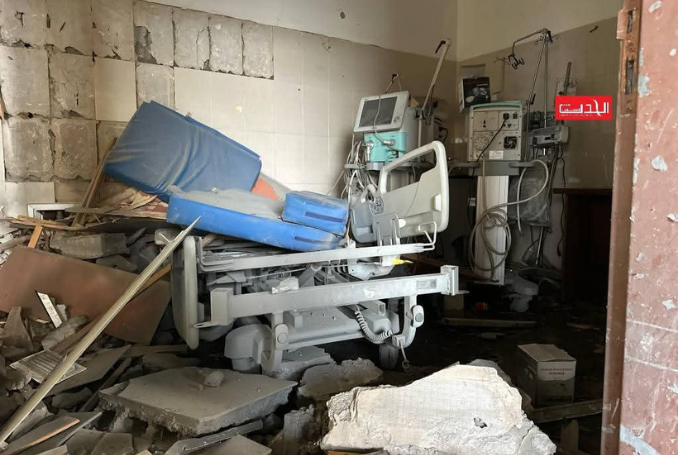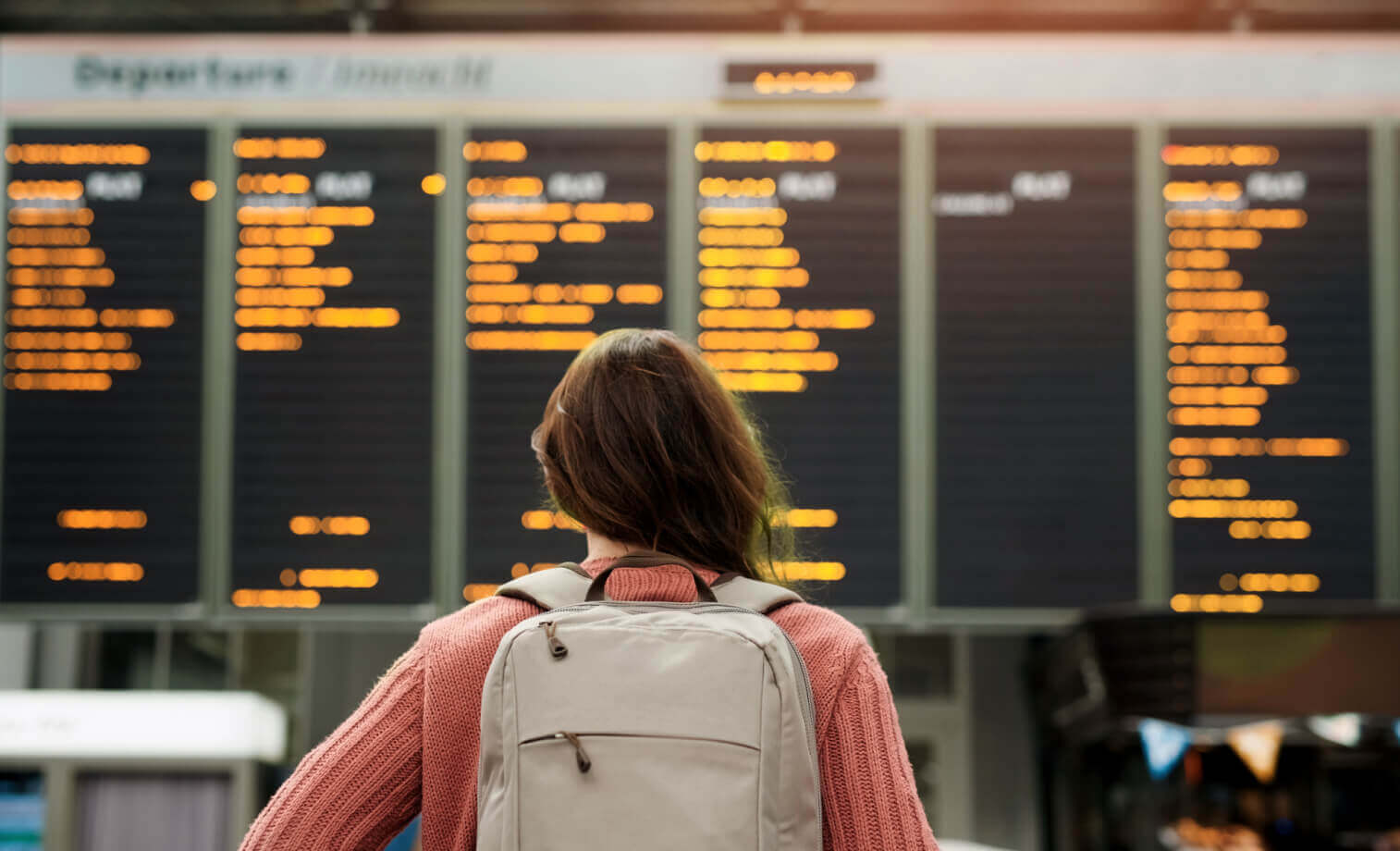
Allergic Living has created the comprehensive Airlines & Allergies Guide to help our followers with their airline booking decisions. As there’s heightened concern about avoiding allergen exposures when flying, we know that travel accommodations information is essential and empowering.
The Guide is divided into 2 parts: the second part (below) covers International airlines. The Guide’s first part is also a must-read – with details on key Domestic (U.S & Canada) airlines.
Our Guide is the result of extensive reporting and research. We thank the airline representatives who took the time to answer our many allergy-related questions. From pre-boarding to PA announcements, buffer zones, pet allergies, medical kits and more – we cover a lot of ground.
You’ll find some of the global airlines we include to be particularly accommodating. Then some carriers put emphasis on what they “can’t guarantee”. But whether good news or bad, it’s extremely helpful to know what an airline will offer in relation to allergies.
We hope the Airlines & Allergies Guide – both of its parts – will serve as a starting point for many of your allergy-safe travels. Please share and we welcome your feedback on Instagram or Facebook.
• Ask to pre-board to wipe the seating area for allergens.
• Carry epinephrine auto-injectors or nasal sprays with you on board.
• Let flight attendants know of your/your child’s severe allergy.
• Bring your own safe food to avoid cross-contact in airline meals.
• Have an MD’s note about the allergies and meds.
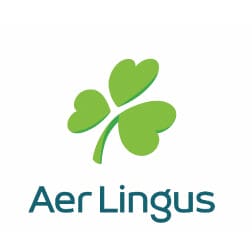
Airline wants to be informed of peanut allergies. It doesn’t serve peanuts, but warns of cross-contact for peanuts and nuts.
Details are from website and our research. Aer Lingus did not respond to Allergic Living’s specific questions.
Irish airline Aer Lingus says that passengers with peanut allergies should inform the cabin crew of the allergy during boarding. It does not mention other severe food allergies, but Allergic Living recommends making the crew aware, just in case of a reaction.
The airline says epinephrine (adrenaline) auto-injectors are to be carried in carry-on baggage. The devices should be accompanied by a doctor’s note or a copy of your prescription to present to airport security. Asthma inhalers can also be taken in the carry-on.
Other than the crew wanting to be aware of a passenger’s severe food allergy, Aer Lingus has no special allergy accommodations in its policy. It notes that it cannot prevent other passengers from bringing nut-based products on board and consuming them during a flight.
Aer Lingus strongly encourages customers with allergies “to take all necessary medical precautions to prepare for the possibility of exposure.”
Peanuts are not served as part of snacks or meals, but the airline says there may be traces of peanut (or peanut oil) in snacks or meals. Peanut or nut-free meals are also not available. Order-ahead meals include ‘gluten-intolerant’ and dairy-free, egg-free (vegan) options.
Information not available on website.
Aer Lingus crews received training in first aid and in managing in-flight medical emergencies. Airline did not answer on specific anaphylaxis training.
Airline did not answer on what form of epinephrine (vial and/or auto-injector) is carried in the emergency medical kit.
Anecdotally, on the No Nut Traveler website, we have heard positive reports of Aer Lingus crews making peanut or nut allergy announcements, and asking others not to consume these foods. However, these were likely crew initiative, as announcements are not listed as part of the airline’s policy.
Aer Lingus’ website link.
*With meals, Allergic Living always recommends bringing your own food. See our concerns with airline catered meals here.
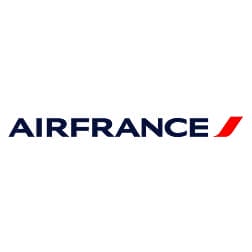
A special allergen-free meal and gluten-free meal available. Few accommodations overall.
Details are from website and our research; Air France did not respond to Allergic Living’s detailed questions.
The French airline does not give information on whether you can identify your food allergy (or that of a family member) during booking. But we recommend telling a gate agent and the in-flight crew. Medical clearance is not needed for food allergies.
Air France advises allergic passengers to carry their medication (e.g. epinephrine, asthma inhalers) on board and keep it in reach. It says: “place it with the accompanying prescription in your hand luggage.”
The airline indicates it follows the recommendations of the International Air Transport Association (IATA) for the allergen-sensitive passenger. These include informing the airline crew of your allergy and bringing wipes to clean your seats of allergenic residue. IATA notes that airlines “cannot guarantee an allergen-free environment,” and that others may bring foods containing allergens on board.
Air France’s main website does not specify whether it allows pre-boarding to undertake wiping seats. However, its Canadian site says pre-boarding for severe allergies is allowed when requested. We recommend asking for the accommodation.
Air France is known for offering one allergen-free meal option, which is free of Europe’s top allergens.
The allergen-free meal contains none of: gluten, shellfish, eggs, fish, peanuts, soy, milk, nuts (almonds, walnuts, hazelnuts), celery, mustard, sesame, lupine, mollusks, and sulfites that exceed 10 mg/kg.
A gluten-free meal and a vegan meal (no dairy, egg or animal products) are available. Special meals must be ordered at least 24 hours in advance of travel. With regular meals, the cabin crew can share a list of food allergens in dishes being served on flights departing from Europe.
On meals, the airline states: “With the exception of the allergen-free meal, we cannot guarantee the absence of food allergen or peanut traces in our meals, both on board and at the airport.”
Air France allows small cats and dogs in the cabin, as well as recognized service dogs. The airline’s website doesn’t specify how it accommodates a pet allergy. We suggest contacting their disability services.
Air France did not answer our questions, but international regulations require airlines to have a medical kit and for crew to have a minimum of first-aid training. No information was available on whether Air France has an epinephrine auto-injector in its emergency medical kit. European carriers usually have epinephrine in vials available.
Air France’s website link.
*With meals, Allergic Living always recommends bringing your own food. See our concerns with airline catered meals here.
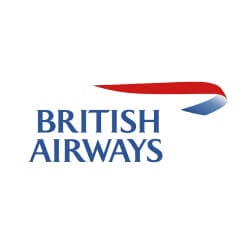
For peanut, nut, sesame allergies, crew will make announcement asking those nearby not to eat allergens. Pre-boarding allowed.
British Airways (BA) says anyone traveling with a severe allergy must alert the cabin crew, so they can offer the appropriate guidance and support. Let them know you’re carrying epinephrine in case of emergency.
Booking agents are not able to pass on dietary information to the cabin crew. Carry epinephrine in your carry-on bag and BA suggests having your emergency anaphylaxis plan with you, in case security wants to see.
For individual advice, a passenger may contact BA’s passenger medical clearance unit by email at [email protected].
BA allows passengers with food allergies to pre-board the aircraft to wipe down the seats, provided they show gate agents their epinephrine (adrenaline) auto-injectors. (Allergic Living recommends having the prescription label on your devices or having the box with it.) Customers must bring their own cleaning wipes.
Upon request with peanut, tree nut or sesame allergies, the crew will make an announcement so that other passengers are aware of your allergy. Those seated near the allergic passenger will be asked to refrain from eating foods with the allergen(s). Cabin crew will also suspend the serving of loose nut snacks in your cabin.
Passengers can bring their own food on board. BA asks that you check the laws of your destination for food types permitted to enter the country.
Peanuts are not served as snacks or used as ingredients in meals. However, the airline says meals “may be produced at a facility that handles peanuts.” With tree nuts, even if the crew makes an allergy announcement, tree nuts may still be served as snacks (and in meals) in other cabins.
For advance-ordered meals, the airline offers options such as gluten-free and vegan (dairy-free, egg-free, meat- and gelatin-free). BA’s list of special meals is here, and you can ask a flight attendant to see their full list of allergens for meals.
Be aware that the airline says special diet meals “may contain a range of allergens, including tree nuts or sesame, and may not be suitable” for customers with food allergies.
British Airways does not allow pets in the cabin. Pets are only allowed to be transported in cargo. Recognized service dogs, however, may be in the cabin of your BA flight.
The airline asks that you advise the cabin crew and the people seated next to you of your allergy, where your medication is and what to do in an emergency. The cabin crew are trained to speak to people seated near to you to help explain your allergy.
Flight attendants are trained to recognize symptoms of anaphylaxis and administer treatment. However, BA states that if you are travelling with family, friends or guardians, they would be expected to treat you first.
EpiPen auto-injectors in both pediatric and adult dosages are available.
BA says: “We cannot guarantee an environment completely free from allergens, allergens and traces of allergens may be present in our meals.”
British Airways’ website link.
*With meals, Allergic Living always recommends bringing your own food. See our concerns with airline catered meals here.
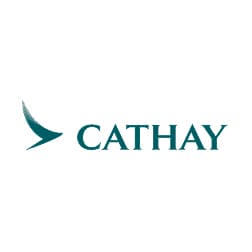
Nut-free snack substitution possible, priority boarding to wipe seats, no guarantee of nut-free meals or cabin.
Cathay Pacific requires passengers with a peanut or tree nut allergy to submit a completed physician’s statement at least 72 hours before departure.
The airline also recommends those who have food allergies consult a physician to confirm their “fitness to fly”.
With a submitted physician’s form, Cathay will attempt to provide peanut- and nut-free cocktail snacks within the cabin where the passenger is seated. However, in other cabins (they include first, business, premium economy or economy), nut-containing snacks will remain available. This includes in free snack baskets, accessible to all.
Passengers may request priority boarding to wipe down the seating area with their own wipes. The airline recommends those with food allergies bring your own food and carry an epinephrine auto-injector. (We recommend a minimum of two epi devices.)
Cocktail snacks can be replaced in one cabin with nut-free alternatives, but only for passengers who submit the physician’s form.
However, Cathay does not ensure nut-free meals, and cannot guarantee that meals are free of cross-contact. Meals served to others in the same cabin may contain peanuts or tree nuts.
Special meals such as gluten-intolerant or low-lactose options can be requested at least 24 hours before departure. These are not considered safe for those with IgE-based milk or wheat allergies.
Cathay Pacific permits only trained service animals in the cabin. Passengers’ pets travel by cargo.
Our questions on this area were not answered. The website says passengers are strongly advised to carry their own prescribed epinephrine and to wear a medical bracelet.
Cathay Pacific does not specify emergency medications available on board on their website. Passengers are urged to bring and self-administer their own epinephrine and any necessary allergy medications.
The airline states it cannot guarantee a peanut- or tree nut-free environment in its aircraft cabins or airport lounges. Passengers with severe food allergies are advised to take full personal precautions.
Cathay Pacific also states that in the event of circumstances such as weather-related delays or last-minute aircraft changes, it may not be able to guarantee the substitution of nut-free snacks.
Cathay Pacific’s website link.
*With meals, Allergic Living always recommends bringing your own food. See our concerns with airline catered meals here.
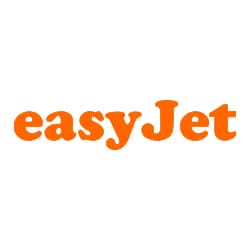
Crew will make peanut/nut allergy announcement,pre-boarding to wipe seats, no pets permitted
A spokesperson for the U.K.-based easyJet says advance notification of a food allergy is recommended, so it can be added to the passenger’s booking record.
Accommodations do not require a doctor’s note. During the online booking process, easyJet says to select Special Assistance and then select the “I have a nut allergy” statement.
If a passenger hasn’t notified of a food allergy in advance, they can still make the airline’s gate staff aware as they board. That way, an on-board allergy announcement can be made.
Notify easyJet’s gate staff if you wish to clean your seating area on the flight. With notification, they will let you pre-board ahead of other passengers.
If the customer notifies the airline of a peanut or nut allergy, an in-flight allergy announcement can be made. Other customers will be asked not to eat any nut products during the flight. Crew will stop the sale of any products containing nut ingredients.
EasyJet did not clarify whether announcements are made for other food allergens. But it says that “if you have another allergen which requires an epinephrine (adrenaline) auto-injector” to carry your medication in a carry-on and inform the crew.
Nut products are not offered as part of the on-board food options. EasyJet says it cannot guarantee a nut- or allergen-free environment. A variety of meals are served, some of which are labeled as gluten-free or vegan/vegetarian.
EasyJet does not allow pets on its flights; only approved assistance dogs are permitted. When the airline is notified of a dog allergy and another passenger has a special assistance dog, the crew will endeavor to move the passenger with the allergy away from the animal.
Crew are trained to recognize the signs of anaphylaxis and to use an epinephrine auto-injector if the passenger cannot self-administer
EasyJet carries antihistamine in tablet and liquid form. The spokesperson notes that while not required by regulations, they carry an epinephrine auto-injector on boardfor emergency use. The airline also advises any passenger at risk of anaphylaxis to carry their own auto-injector and other medication.
The airline says: “We’ll do all we can to help, but we cannot guarantee a nut- or allergen-free environment on board our aircraft.”
easyJet’s website link.
*With meals, Allergic Living always recommends bringing your own food. See our concerns with airline catered meals here.
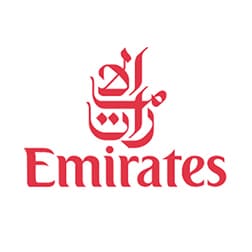
Solid crew training on anaphylaxis, and special meals offered. The concern: nuts and other allergens are routinely served.
While a doctor’s note is not required, Emirates recommends that passengers with severe allergies carry one that outlines their condition.
During the booking process, passengers can request special meals that accommodate their food allergies. (See more in the Meal Policy section.) Since nuts are served, Emirates recommends that passengers with a nut allergy discuss travel plans with physician before flying.
Emirates does not allow pre-boarding for passengers with food allergies to wipe seating areas. But a spokesperson says the cleaning team thoroughly cleans the seating areas before departure. This is to ensure there are no traces of the previous flight’s catering.
Emirates’ crew are trained to provide those with food allergies information about the ingredients of the meals, and to offer alternative meal options.
Advance notice is required for special food requests, including allergy accommodations. Passengers can note their meal preferences in the online “Manage My Booking” portal or via the Emirates app. Orders need to be placed at least 24 hours before departure. However, some of the meals contain dairy, tree nuts, egg or seafood.
For nut allergies, Emirates says: “We can’t guarantee our meals are nut‑free. We serve nuts on all our flights.” They are served either as a meal ingredient or a snack with drinks. The airline says that other passengers may bring food on board that contains nuts, and surfaces may have nut residue.
Special diet meals can also be ordered through the portal or app. There is a gluten-friendly option (not certified GF) and a vegan option (dairy-free, egg-free, gelatin-free).
For a pet allergy, Emirates says it cannot guarantee the separation of pets and allergic passengers. But the spokesperson says crew will “make every effort to accommodate both parties”.
The airline recommends that passengers with pet allergies carry medications, including an epinephrine device. Also, notify the cabin crew of the allergy.
Emirates cabin crew receive training on how to respond to medical emergencies, including allergic reactions. The training covers recognizing and treating anaphylaxis and administering medications in the emergency medical kit. Flight attendants have access to onboard manuals and medication dosage guides. In a severe allergic reaction, the crew will contact Emirates Ground Medical Support for advice.
Medication for severe allergies is available in emergency medical kits on all Emirates aircraft. (Type of medication was not specified).
Emirates offers allergy meal requests and general crew training, but it does not modify its inflight service for food allergy passengers. Nuts are routinely served, even when severe allergies have been disclosed. Passenger reports suggest that food allergy awareness is not a priority for this airline.
Emirates’ website link.
*With meals, Allergic Living always recommends bringing your own food. See our concerns with airline catered meals here.
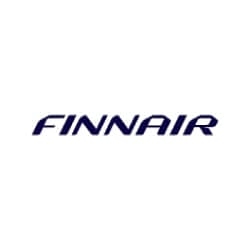
pre-boarding to wipe seats, plus crew assistance for peanut and nut allergies.
Finnair recommends informing the flight crew when boarding of a severe allergy. There’s no place to identify an allergy in booking process and customer services representatives are unable to communicate allergy information to the crew.
A doctor’s note is not required for accommodations. However, if a passenger has multiple food allergies, Finnair’s spokesperson says they advise consulting a doctor before booking a flight to evaluate potential risks.
The Finnish airline says passengers with food allergies can pre-board to clean their seating area for allergen residue. Crew members, when notified of the allergy, can provide disinfectant wipes.
For nut and peanut allergies, upon request, the crew will ask customers seated near the passenger to refrain from eating nut products on the flight. The airline does not do plane-wide allergy announcements.
Finnair crews do not avoid serving certain items or products in regular onboard meals because of food allergies. The airline says it cannot prevent other passengers from bringing nuts onboard. They also serve fish and seafood onboard.
The airline has a variety of special meals available for pre-ordering, including gluten-free and vegan (dairy-free, egg-free, gelatin-free). In Business Class, there is a special meal for allergies that doesn’t contain gluten, nuts, peanuts, eggs, milk, fish or crustaceans.
However, the airline notes that in-flight meals or snacks may contain peanuts or nuts. It says the food served may contain traces of other top allergens as well.
Customers are welcome to bring their own food on board if it’s in line with carry-on security rules. Finnair crews cannot heat or refrigerate food items you bring.
If a customer has severe animal allergy, Finnair requests you and your doctor fill out their medical certificate. This also allows them to close the on-board pet quota (usually 2 pets per flight). If there is already a pet confirmed for the flight, that booking will stand. Service dogs are allowed in the cabin.
Flight crew are trained into handle in-flight emergencies. They can start first aid and consult the MedAire service’s app, which guides flight crews on medical situations. When needed, they will make a PA announcement asking for medical volunteers and also contact MedAire’s MedLink service. It has physicians available for emergency guidance.
If a passenger has been prescribed an epinephrine auto-injector or other device, Finnair recommends you have it in carry-on baggage. Place the device in a separate bag, preferably with packaging showing the prescription label, plus a physician’s letter about your allergies.
Finnair flights’ emergency medical kits (EMK) are equipped with injectable epinephrine in 1mg/mL for treating severe allergic reactions. Hydrocortisone 125 mg/mL is also available. Finnair EMKs don’t include an epinephrine auto-injector.
Finnair’s website link.
*With meals, Allergic Living always recommends bringing your own food. See our concerns with airline catered meals here.
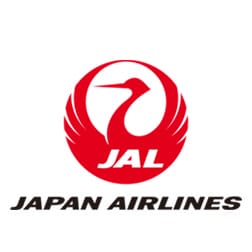
Doesn’t serve peanuts, staff will try to help with food allergies, ‘minimal allergen meals’ offered.
Passengers can identify their food allergy when booking tickets. Japan Airlines (JAL) recommends that the food allergy information is noted in advance, especially if the customer wishes to order special allergen diet meals.
Is a doctor’s note required for any food allergy accommodation? The airline was ambiguous on: “only if the customer’s symptoms are deemed serious enough to require a doctor’s note.” We’d suggest having one.
With the exception of flights to/from Canada, Japan Airlines does not provide pre-boarding to those with severe food allergies to wipe the seating area. With peanut allergy though, you can request special cleaning of your seat area. For this, submit an application 2 weeks ahead of the flight. The cleaning accommodation is not provided for tree nut or other food allergies.
In keeping with Canadian regulations, the airline does allow pre-boarding for severe allergies on flights to/from Canada.
A JAL spokesperson says that if a customer’s requests it, cabin crew can ask passengers nearby “to refrain from taking food containing allergens.”
JAL does not serve peanut snacks or use peanut products in its in-flight meals. However, JAL does not guarantee its flight cabins to be peanut-free. This is because of the possibility of food cross-contact and because other passengers may bring peanuts on board with them.
JAL makes “minimal allergen meals” available, which need to be ordered at least 72 hours before departure.
While Allergic Living prefers allergic passengers bring their own safe food when flying, JAL does make considerable effort on allergy-friendly meals. (See sample menus.) It has teamed up with a catering service that makes foods in kitchens dedicated to preparing Minimal Allergen Meals. (The meals often do contain fish.) We recommend asking questions about the meals if you’re considering ordering. See more here.
JAL says that it “takes utmost care when preparing meals for passengers with food allergies.” However, it adds a caveat: “there may be cases where a minute amount of allergens is detected in the meal.”
JAL does not accept pet dogs and cats in the cabin, only in the cargo area. Service dogs are accepted in the cabin.
Flight attendants’ first-aid training does not specifically include training for allergic emergencies. JAL’s spokesperson says that if there is an allergy emergency, “the procedure is to call the doctor [on the ground] immediately and prepare medical supplies.”
Japan Airlines emergency medical kit includes an epinephrine 0.1 mg/mL prefilled syringe kit for treating severe allergic reactions.
The airline says “so that customers themselves can deal with an allergic reaction,” they recommend they carry an epinephrine auto-injector and other medications prescribed by a doctor.
Japan Airlines’ website link.
*See Allergic Living’s concerns in general with airline catered meals here.
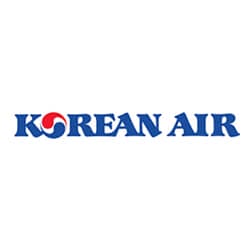
Peanuts are not served in snacks or meals, crew will make ‘refrain from’ cabin announcement, pre-boarding is allowed.
During the booking process, you can identify your allergy.
The airline advises allergic passengers to bring a doctor’s note, in case security needs to see it as the person is carrying epinephrine auto-injectors. Korean Air encourages such passengers to share information, including the doctor’s note, with gate agents upon check-in at airports.
Family members or other persons with you must be able to assist with medical care (e.g. administering an auto-injector). If you are traveling alone, you must be able to self-administer your device.
Upon request, a passenger with food allergy can pre-board to wipe the seating area for allergen residue. A spokesperson said Korean Air staff will provide wipes and face masks to the passenger.
When requested, a flight attendant will make an announcement asking others to refrain from eating peanut products brought on board.
Staff are trained to ask whether the allergic passenger has an auto-injector and/or other medication with them. They’ll ask to know where the medication is being kept.
Staff will frequently check on the passenger, especially during mealtime.
Korean Air does not serve snacks or in-flight meals that contain peanuts or peanut ingredients. The spokesperson notes that the crew cannot prevent other passengers from bringing peanut products into the aircraft. As well, the airline does not guarantee a peanut-free environment.
The spokesperson says that with 48 hours’ notice, Korean Air does offer to serve an “allergen-free meal,” which can be made without the passenger’s allergens. Under “special diet,” there is also a “gluten intolerant” meal. (However, due to cross-contact risks, we still prefer bringing your own food on board.)
Korean Air has assigned seating for passengers traveling with pets. Other passengers who will be in the immediate vicinity the animal are informed about the pet during check-in. If a person has an animal allergy, the spokesperson says the airline will make all efforts to accommodate that passenger.
Allergy emergency response is included in cabin crew training, as well as first aid methods to respond to various symptoms.
A manual with medical instructions is also available on all flights for medical professionals and crew to use. Responding to in-flight allergic and anaphylactic emergencies is included.
Korean Air says it carries medical kits that meet the requirements of the International Civil Aviation Organization (ICAO) guidelines on all flights. For allergy emergencies, the kit contains epinephrine in vial form and antihistamine injections are available on board all flights.
Korean Air’s website link.
*With meals, Allergic Living always recommends bringing your own food. See our concerns with airline catered meals here.
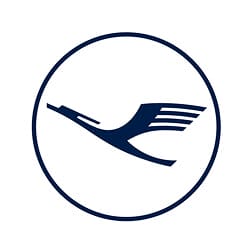
airline doesn’t sell peanuts or nuts, crew trained to handle allergic reactions, planes cleaned frequently.
Guests are asked to carry a doctor’s note with them for any food allergy (in case of emergency).
Food allergies can be identified during Lufthansa’s booking process.
Lufthansa does not serve peanuts on flights. However, the German carrier does not guarantee that aircraft and the food served on board are completely free of peanuts or peanut products.
The airline points out that other passengers can bring products containing peanuts on board. The same also applies to tree nuts and other allergens that may cause an allergic reaction. The airline does sell tree nuts.
Lufthansa’s spokesperson did not answer whether pre-boarding to wipe seats is available to those with severe allergies. It does not appear to be. However he did stress Lufthansa’s strict cleaning procedure, done a few times a day. This includes wiping the seats and table trays and vacuuming carpets.
Lufthansa says allergens such as nuts and seeds are listed in its menus. They recommend guests ask the crew about any questions on ingredients.
A spokesperson says special meals can be ordered on most routes up to 24 hours in advance. These include vegan (dairy-free, egg-free, animal product-free) and gluten-free.
If no special meal is suitable, the guests can enter their allergies in a text box “in the special meals topic field.” Lufthansa will check together with the caterer whether it can provide the passenger with a suitable meal. This is not guaranteed. (See also our note at the end about airline meals and cross-contact risk.)
Each passenger is allowed to take a maximum of two animals with them (in an approved carrying carrier) in the cabin. The airline provided no information on whether pet allergies are accommodated.
Lufthansa’s spokesperson says that flight crew’s medical training includes handling allergic reactions. In the event of a severe allergic reaction the crew have access to medicines in the emergency kit. Plus, there is a 24-hour hotline to contact a doctor on all Lufthansa long-haul flights.
The airline did not provide an answer to our question.
Lufthansa’s website link.
*With meals, Allergic Living always recommends bringing your own food. See our concerns with airline catered meals here.
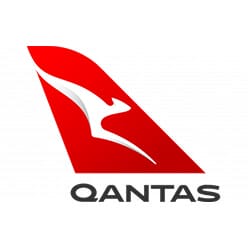
steps to minimize peanut exposure,allergypre-boarding to wipe seats, auto-injector in medical kit.
For food allergy accommodations, the airline says “advance notice is required and requested at least 4 days before the date of travel.” No doctor’s note is necessary.
Passengers with food allergies can pre-board to wipe the seating area in case of allergen residue.
For peanut allergies, Qantas notes that it no longer serves peanuts on its flights or in its lounges. The airline minimizes the use of peanut ingredients in its meals.
Qantas says that it and the caterers take “all reasonable steps to reduce the exposure to peanuts in-flight and on the ground.” However, the airline notes that other passengers may bring peanuts or tree nuts on board. The airline does serve tree nuts, including almonds, cashews and macadamia nuts, as snacks.
Special diet meals, ordered at least 24 hours in advance, include vegan (dairy-free, egg-free, animal product-free) and gluten-free options.
Qantas says: “we can’t guarantee an allergy-free environment on board or in our lounges.” It notes the variety of potential allergens, and that other customers may bring them on board or consume them in ordered meals.
Qantas only allows qualified service dogs in the cabin.
First-aid training for Qantas crews includes how to respond to allergic emergencies. Written instructions for treating anaphylaxis are also available to the crew.
The medical kits on Qantas flights contain an anaphylaxis kit with epinephrine auto-injectors (adult and child doses), as well as steroids and antihistamines.
Qantas’s specific needs website link plus peanut allergies link.
The airline recommends that passengers carry any medication they may need with them in the cabin of the aircraft and be ready to administer the medication if necessary.
*With meals, Allergic Living always recommends bringing your own food. See our concerns with airline catered meals here.
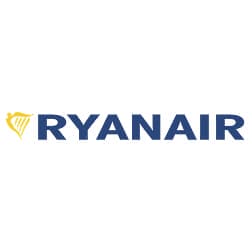
Crew will make announcement that nut products won’t be sold, ask others to refrain from eating peanut products.
Details are from website and our research; Ryanair did not respond to Allergic Living’s detailed questions.
The Irish airline Ryanair did not give information on whether you can identify your food allergy (or that of a family member) during booking. But it says to inform the cabin crew as soon as you board. We recommend telling the gate agent as well.
Ryanair doesn’t specify whether it allows pre-boarding with a severe allergy. (Other airlines allow this to wipe the seat area for allergenic residue.)
Despite not answering our questions, Ryanair is quite accommodating of “nut” allergies. (This term appears to cover both peanut and tree nuts.) Airline does not extend accommodations to other food allergens.
If you inform the crew upon boarding of a peanut or tree nut allergy, a flight attendant will make a PA announcement. The announcement will say that “no products containing nuts will be sold on board” the flight and ask customers “not to open peanut products on board”.
However, others may still bring peanuts or nuts onto the flight. The airline says it cannot guarantee a peanut-free flight.
Per information above, peanuts and nuts will not be served if the crew is informed before departure. If not informed, be aware the current Ryanair menu does include peanut M&M’s and Snickers for purchase.
The airline lets passengers bring their own food on board. According to this newspaper report, the only limits are that the food must fit within size limits for hand luggage. Not allowed are hot drinks.
For meals, Ryanair’s current menu does include a vegan and gluten-free pasta dish. The menu has the caveat: “All products may be produced in a factory containing other allergens.”
Ryanair crews are trained in first aid. No information is available on whether they receive specific training on anaphylaxis readiness. Also, no information on whether the airline has an epinephrine auto-injector in its medical kit.
Ryanair’s website link.
*With meals, Allergic Living always recommends bringing your own food. See our concerns with airline catered meals here.
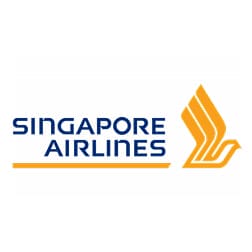
Pre-boarding allowed to wipe allergen residue, allergy-aware medical kit, can’t provide a nut-free cabin.
A doctor’s note is not required for pre-boarding or special meal accommodations.
Singapore Airlines or SIA requests that you take every necessary precaution, bearing in mind the risk of exposure to an allergen. It says: “If you have any concerns about your fitness to travel, we encourage you to share this information and discuss your travel plans with your doctor.”
Passengers with severe allergies can request to pre-board to wipe the seating area for allergen residue.
SIA gate staff will both check if the passenger carries required medication and inform the in-flight crew of the allergy. A few years ago, SIA stopped serving peanuts as an allergy accommodation.
However, the airline stresses that it is unable to provide a nut-free cabin or guarantee an allergy-free environment.
While SIA does not serve peanuts as a snack, it says some meals either contain or “may contain” peanuts. Peanuts are an ingredient in the airline’s signature satay and nasi lemak dishes. SIA does serve tree nuts, such as cashews and almonds, across all cabin classes.
SIA told Allergic Living that it takes “every precaution to identify allergens on all meals supplied by third-party catering partners”. Yet, it says there may be trace elements of nuts or their derivatives in meals and snacks. The airline says it has no control over passengers consuming their own food, which may contain nuts or other top allergens.
For those wanting to order Special Meals, this is done via the Manage Booking online page. If the special meals shown on the website do not meet a passenger’s dietary requirements, contact Singapore Airlines for assistance.
SIA offers several Special Meals. There are options such as Minimal Allergen Meal, Non-Strict Nut Free Meal, Non Seafood Meal, Low Lactose Meal (with no dairy), and a Gluten Intolerant Meal. Depending on the route, the airline says special meals need to be ordered at least 24 to 56 hours ahead of departure.
Cats and dogs are allowed in the cabin. SIA’s procedure is to inform the passengers seated near the pet during check-in. If a passenger says they have an allergy, the ground staff will move that person to another seat.
The crew is trained to monitor allergic reactions and to assist the passenger with their own medication if needed. SIA says that, in an emergency, the crew will page for a doctor on board and contact ground telehealth services for advice. The in-flight first aid manual includes an anaphylaxis section to assist the crew.
SIA’s medical kits include an epinephrine auto-injector (EpiPen) and 4 epinephrine vials in the dose for anaphylaxis. Other asthma/allergy tools include: albuterol (Ventolin) as an inhaler and 2 mg tablets, a corticosteroid inhaler, 4 hydrocortisone 100 mg vials for injection, injectable antihistamine (chlorphenamine, 10 mg), dexamethasone corticosteroid 0.5 mg tablets, and a decongestant spray.
Singapore Airlines’ website link.
*With meals, Allergic Living always recommends bringing your own food. See our concerns with airline catered meals here.
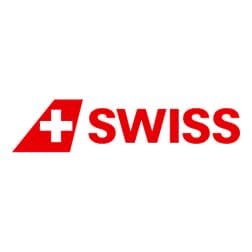
Doesn’t serve peanuts, allows pre-boarding to wipe seats, flight crew anaphylaxis training.
SWISS does not generally ask passengers to identify having serious allergies.
However, those interested in ordering special meals need to contact the airline’s Service Center at least 5 days before departure. SWISS does not require a doctor’s note for special meals.
You are permitted to bring you own safe food on board, though crew cannot chill or heat it.
SWISS lets passengers with food allergies pre-board to wipe the seating area for allergen residue. Airline says no disinfectant, though, since it can damage seats.
SWISS does not serve peanuts on its flights. However, it says that some meals may have ingredients with peanuts or they “may contain” traces of either peanuts or nuts. Travelers report that crew serve mixed tree nuts as snacks in economy on some flights.
The airline requests that passengers not bring peanuts on board. However, it says some may still bring peanuts or nuts onto a flight. SWISS says: “We are therefore unable to guarantee a nut-free environment on a SWISS-operated flight.”
Special meals offered include a vegan meal (free of dairy, egg, animals products) and a gluten-free meal.
SWISS allows cats and dogs in the cabin, as well as service dogs. A pet must be kept in a carrier during the whole flight. The airline limits the number of animals on a flight to 3–5, depending of the size of the aircraft.
If an allergic passenger is seated near a traveling animal, the crew will move the passenger to a seat away from the animal.
A spokesperson says SWISS crew members are trained in first aid, and in dealing with severe allergic reactions.
Flights carry written instructions for treating an allergic/anaphylactic reaction to aid a volunteer medical professional or the crew. Flight attendants can offer medication or, when needed, call the airline’s ground-based medical service for advice and support
The onboard medical kit includes epinephrine in vial form (1 mg/1 mL), prednisone (used with doctor’s direction), asthma inhaler (salbutamol) and clemastine antihistamine in a vial. There are also cetirizine antihistamine tablets.
SWISS advises passengers with serious allergies to be sure to carry their own emergency medicine with them.
SWISS’s FAQ link and nut allergy info link.
*With meals, Allergic Living always recommends bringing your own food. See our concerns with airline catered meals here.
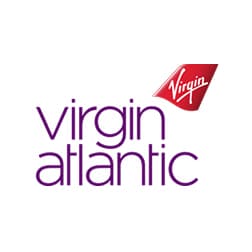
pre-boarding to wipe seats, carry-on allowance for own food, auto-injector in medical kit, crew anaphylaxis training.
Virgin Atlantic recommends that passengers with food allergies seek advice in advance from Special Assistance team. The team can alert the cabin crew to the customer’s severe allergies.
With food allergies, Special Assistance will discuss whether any suitable in-flight meal choices. If not a fit for your diet needs, the team can authorize additional hand (carry-on) luggage, allowing more room to bring food. Carried-on food needs to comply with security rules.
A medical document is not required, except when a customer has had a serious allergic reaction and required hospital treatment or epinephrine within 30 days of departure.
At the airport, identify yourself to the gate agents. Virgin’s spokesperson says passengers with food allergies “are welcome to pre-board to wipe down their seat and surrounding area.”
If bringing food, the cabin crew cannot refrigerate or heat it. They can provide hot water for instant soup or noodles.
When notified of an allergy, the airline says it can try to allocate seats a reasonable distance from other passengers, such as at the back of the cabin.
Peanuts are not served as snacks, and “never knowingly” in meals. However, Virgin says this refers to ingredients. Its food ‘may contain’ traces of top allergens via processing.
Tree nuts may be served as snacks or as meal ingredients. Other passengers are allowed to bring food on board, which can include nuts. The airline does not alter its in-flight foods service for allergies.
For those less concerned with “may contains,” the Special Assistance team can discuss menus for ordering meals ahead of a flight. Special diet meals include vegan (dairy-free, egg-free, animal-free) and gluten-free.
Virgin Atlantic only accepts trained assistance dogs in the cabin. If you have a dog allergy, the Special Assistance team or the gate agents can notify you whether an assistance dog is booked on the flight.
If so, the spokesperson says that “all possible actions will be taken to mitigate any risk to the customer with the dog allergy.” The usual option is to move your seat away from the dog. Another choice, if needed, is to rebook on another flight.
Virgin says its cabin crew undergo extensive first-aid training to deal with in-flight medical emergencies. The airline has written instructions available to assist medical volunteers and the crew when managing an allergic/ anaphylactic emergency. Attendants also can connect to physicians with a ground medical service.
In its emergency medical kits, Virgin has an epinephrine vial in the 1:1000 dose that’s for anaphylaxis. Plus, the spokesperson says there’s an epinephrine auto-injector in the EMK on every flight. Customers encouraged to carry their own medication in their hand luggage.
Virgin says: “Our [food] suppliers are based all around the world and not every country has the same legal requirements for providing allergen information. On flights to the U.K., allergen labelling on pre-packaged items may not reflect all of the allergens required to be declared in the U.K.”
Virgin Atlantic’s website link.
*With meals, Allergic Living always recommends bringing your own food. See our concerns with airline catered meals here.
Don’t Miss It!
See Our Airlines & Allergies Domestic Guide


Lianne Mandelbaum
Lianne Mandelbaum, Allergic Living’s Airlines Correspondent, is the main author of these Guides. She is the founder of the nonprofit Nonuttraveler.com and the leading airlines and allergies advocate.

Gwen Smith
Gwen Smith, Allergic Living’s Editor and Co-Founder, is the second author and researcher on the Guides.










